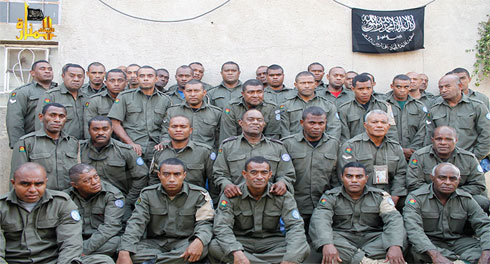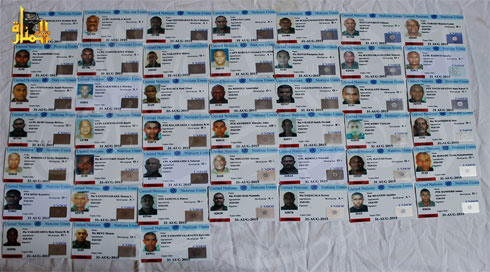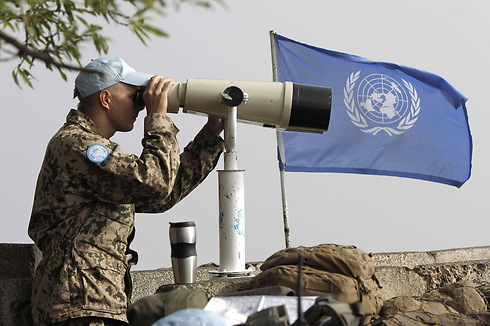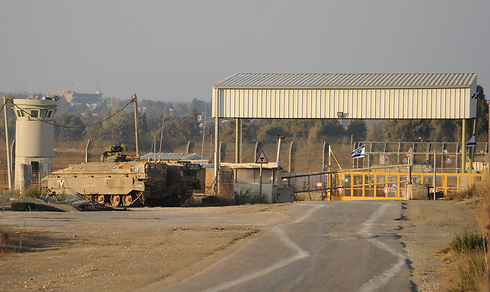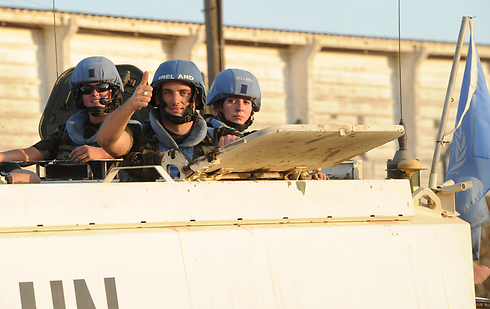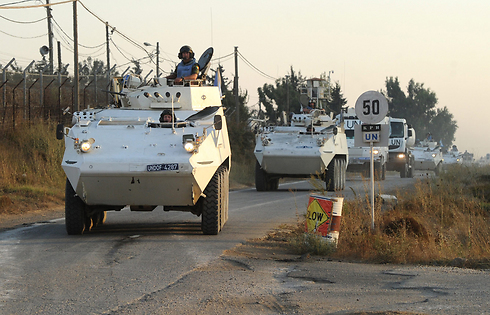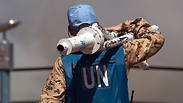
All Filipino UN peacekeepers escape Golan standoff
40 UN troops from the Philippines escape under fire, while 44 Fijian troops remain in al-Qaeda-linked insurgents' hands; Syrian troops come to aid of Filipino peacekeepers by firing mortar rounds at rebels.
MANILA - Under cover of darkness, 40 Filipino peacekeepers made a daring escape after being surrounded and coming under fire by Syrian rebels in the Golan Heights, the Philippine military chief said Sunday, while 44 Fijian troops remained in the hands of the al-Qaeda-linked insurgents.
After coming under rebel attack Saturday, the first group of 35 Filipino peacekeepers was successfully escorted out of a UN encampment in Breiqa by Irish and Filipino forces on board armored vehicles, Gen. Gregorio Pio Catapang and other military officials said.
Another group of 40 Filipino troops had remained trapped at another encampment, called Rwihana, by more than 100 gunmen who rammed the camp's gates with their trucks and fired mortar rounds after the Filipinos refused to surrender with their weapons. Surrounded and besieged, the Filipinos returned fire in self-defense, Philippine military officials said.
Related stories:
- Islamist group tightens siege of UN peacekeepers in Syrian Golan
- Over 30 UN peacekeepers rescued on Syrian Golan
- Report: UN peacekeepers fleeing from Syria to Israel
Syrian government forces fired artillery rounds from a distance at one point to prevent the Filipino peacekeepers from being overwhelmed, said Col. Roberto Ancan, a Philippine military official who helped monitor the tense Golan standoff from the Philippine capital, Manila, and mobilize support for the besieged troops.
"Although they were surrounded and outnumbered, they held their ground for seven hours," Catapang said in a news conference in Manila, adding there were no Filipino casualties. "We commend our soldiers for exhibiting resolve even while under heavy fire."
The 40 Filipinos fled with their weapons from the Rwihana encampment under cover darkness overnight, traveling across the chilly hills for nearly two hours, before meeting up with other UN forces, which escorted them to safety early Sunday, Philippine officials said.
During the siege, the Philippine secretaries of defense and foreign affairs, along with the country's top military brass, gathered in a crisis room at the military headquarters in the capital to communicate with the Filipino forces and help guide them out of danger. The Syrian and Israeli governments, along with the United States and Qatar, provided support, the Philippine military said without elaborating.
"We may call it the greatest escape," Catapang said.
In New York, The United Nations Disengagement Observer Force, or UNDOF, whose mission is to monitor a 1974 disengagement in the Golan Heights between Israel and Syria, reported that shortly after midnight local time, during a cease-fire agreed with the armed elements, all the 40 Filipino peacekeepers left their position and "arrived in a safe location one hour later."
The clashes in the UN-patrolled zone erupted after Syrian rebel groups - including al-Qaeda's Syrian affiliate, the Nusra Front - overran the Quneitra crossing on the frontier between Syrian and Israeli controlled parts of the Golan on Wednesday, seizing 44 Fijian peacekeepers.
The SITE Intelligence Group reported that the Nusra Front had posted a statement on its Twitter account Saturday taking responsibility for detaining the Fijian peacekeepers. The Nusra Front stated that the Fijian detainees "are in a safe place, and they are in good health, and that we have given them what they need of food and treatment."
The Nusra Front also posted a photo showing what it said were the captured Fijians in their military uniforms along with 45 identification cards, SITE said.
SITE added that the Nusra Front claimed the Fijians were seized in retaliation for the UN's ignoring "the daily shedding of the Muslims' blood" in Syria and even colluding with Syrian President Bashar Assad's army "to facilitate its movement to strike the vulnerable Muslims" through a buffer zone in the Golan Heights. The SITE report could not be independently confirmed.
The UN mission has 1,223 troops from six countries: Fiji, India, Ireland, Nepal, Netherlands and the Philippines. A number of countries has withdrawn their peacekeepers due to the escalating violence.
Philippine officials said Filipino forces would remain in Golan until their mission ends in October, adding they would not be withdrawn prematurely following the rebel attacks and the capture of the Fijian peacekeepers.
Both UN Secretary-General Ban Ki-moon and the Security Council strongly condemned Saturday's attack on peacekeepers' positions and the ongoing detention of the Fijian peacekeepers.
Ban demanded "the unconditional and immediate release of all the detained United Nations peacekeepers." Security Council members, in a press statement, "insisted that UNDOF's mandate, impartiality, operations, safety, and security must be respected."
The Nusra Front has recently seized hostages to exchange for prisoners detained in Syria and Lebanon.










